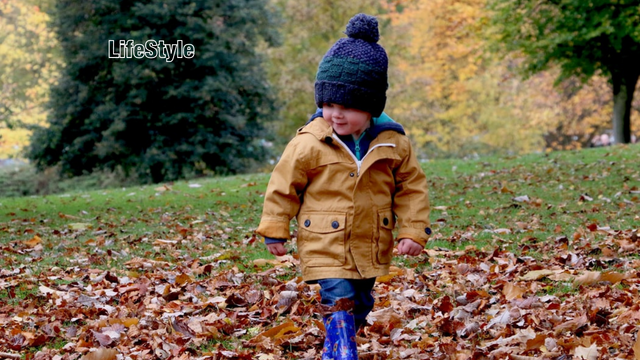Bad treatment of children negatively affects their future behavior
A study conducted by researchers from the British University of Bath and Bristol, confirmed that children who were subjected to abuse during childhood (before reaching the age of 11 years) and adolescence - together - may be more exposed to behavioral problems such as bullying and theft, compared to their peers who suffered from abuse Only in adolescence.
The results of the study, published in BMC Psychiatry, showed that children who were subjected to abuse in both childhood and adolescence were 10 times more likely to be included in the group of study sample individuals who suffer from early childhood behavioral problems. She continued with them later, and 8 times more times, to become part of the study sample group who suffer from behavioral problems in adolescence.

The phenomenon of childhood maltreatment was also associated with a 4 to 6-fold increase in the likelihood that the child will commit persistent behavioral problems in childhood and early adolescence, and in contrast, maltreatment in adolescence was not only linked to an increase in the likelihood of serious behavioral problems among the sample members.
Andreas Bauer, a graduate student in the Department of Psychology and the principal investigator of the study, confirms that behavioral problems in childhood and adolescence - such as bullying, theft, lying, and violence towards others - are the fruit of bad social treatment that an individual may be exposed to during these two periods of a person’s life.
“Behavioral problems are also associated with various negative consequences, such as mental and physical health problems, so it is important to understand their possible causes and to develop effective programs to prevent them and correct intervention to correct these behaviors,” Bauer said.
The researchers tracked data on 13,793 children and adolescents born in southeast England (51.6% of them are male) from the age of four to the age of 17, which are available as part of the Avon Longitudinal Study of Families and Fathers, which has been conducted since the 1990s.
The researchers divided the research sample into three groups, the first included individuals who faced behavioral problems during childhood and adolescence (4.8% of the sample size), and the second included individuals who suffered from behavioral problems during adolescence only (4.5%). Childhood behavioral problems only (15.4%), while 75.3% of respondents did not face any serious behavioral problems.
Bauer adds:
We noticed that abuse was a common denominator among the members of the three groups of the research sample compared to their peers who did not face behavioral problems at all. Exploitation appeared to be more common among research individuals from the first group who faced behavioral problems during childhood and adolescence (together), And members of the second group who suffered from behavioral problems only during adolescence.
The results showed that 19.6% of the participants suffered from some form of exploitation, while the forms of exploitation varied between physical exploitation by 11.3%, psychological exploitation by 8.9%, and sexual exploitation by 8.1%.

Bauer says:
The results indicate that behavior problems that begin in adolescence may be more related to negative childhood experiences than it is an exaggerated form of adolescent rebellion or peer pressure at this stage. Nevertheless, we must realize that it is not necessary to Child maltreatment develops into behavioral problems; As many of the young people who were subjected to abuse did not develop behavioral problems, but these behavioral problems may be exposed to children even if they did not face any form of exploitation or abuse.
On the extent to which the results of this study could be generalized to other societies, Bauer says: Although cruelty to parents and abuse of children is common around the world, there are still differences between each country and another, and there is some evidence that the impact of cruel and abusive parenting Children may partly depend on cultural norms within a country, so similar experiments should be conducted in other countries, especially low and middle income countries.
Special thanks to
@booming01
@booming02
@booming03
@booming04
It is amazing to know the points you mentioned in your post. I also in the firm belief that parents role of the making of breaking their child's life should have a positive impact overall. Especially, for the children having stay at home parents, they can be judged more promptly and closely than the ones having working parents. So, having a good behavioral gesture of your child is a healthy sign of their future.
thank you my friend :)